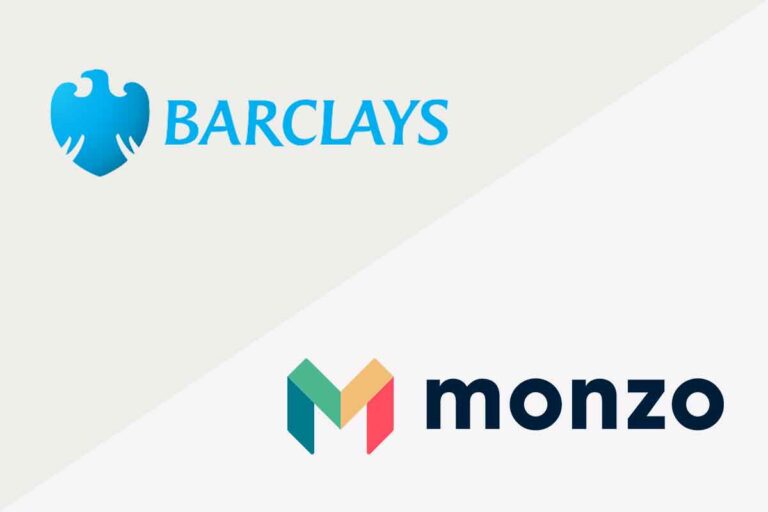Choosing the right bank for your business is crucial to ensure smooth financial operations. In the UK, two popular options are Barclays vs Monzo. Both banks offer a range of services tailored to meet the needs of businesses, but they differ in various aspects.
In this article, we will compare the features, fees, unique offerings, and pros and cons of Barclays and Monzo for business banking. By examining these factors, you can make an informed decision and select the bank that best suits your business requirements.
Barclays vs Monzo
| Features | Barclays | Monzo |
|---|---|---|
| Account Types | Current Accounts, Savings Accounts, Foreign Currency Accounts | Business Current Accounts |
| Business Loans | Available | Not currently available |
| Online Banking | Robust online banking platform | User-friendly online banking platform and mobile app |
| Mobile App | Feature-rich mobile app with advanced functionality | Intuitive mobile app with real-time transaction notifications |
| Cash Deposits | Extensive cash deposit options including over-the-counter and self-service options | Not available |
| International Payments | International payment services including SWIFT transfers and foreign exchange | International transfers with competitive fees |
| Invoice Management | Integrated invoice management tools | Instant invoicing capabilities |
| Expense Tracking | Expense tracking and categorization tools | Built-in expense tracking and reporting features |
| Customer Support | Dedicated customer support and relationship managers | In-app chat support, community forums, and email support |
| Integration Options | Integration with accounting software and other business tools | Integration with popular accounting software and service providers |
| Transaction Notifications | Real-time transaction notifications | Real-time transaction notifications |
| Credit Card Options | Various credit card options for business | Not currently available |
| Overdraft Facilities | Overdraft facilities available | Overdraft facilities available |
| Business Tools | Range of business tools and resources | Monzo Business Marketplace for integrated services |
| Account Security | Strong account security measures and fraud prevention | Card freezing feature and enhanced security measures |
| Account Accessibility | Accessible through physical branches and online platforms | Online platform access only |
| Interest Rates | Competitive interest rates on savings and business accounts | Competitive interest rates on savings accounts |
| User Interface | User-friendly and comprehensive interface | Intuitive and user-friendly interface |
| Additional Services | Bespoke financial solutions, international business support, Barclays Eagle Labs | Savings pots, open banking integration, Monzo Business Marketplace |
| Overall Rating | N/A | N/A |
 | Tide Business Bank Accounts ✓ Free, Plus, or Pro Account ✓ iOS & Android Mobile App ✓ Upload & Auto-Match Receipts Pricing Trial period Contact | |
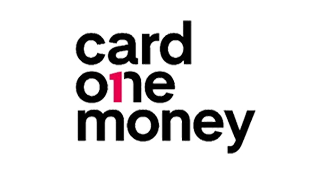 | Card One Money ✓ No Credit Checks ✓ Simple Fees ✓ Up To 3.5% Cashback Pricing Trial period Contact | |
 | ANNA Money ✓ Apply In 10 Minutes ✓ Bookkeeping & Payroll Tools ✓ User-Friendly Mobile App Pricing Trial period Contact | |
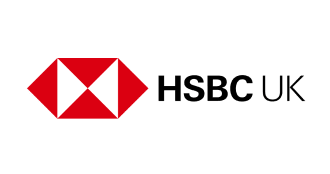 | HSBC Business Banking ✓ Business Current Account ✓ In-Branch, Online & App Banking ✓ FSCS Protected Pricing Trial period Contact | |
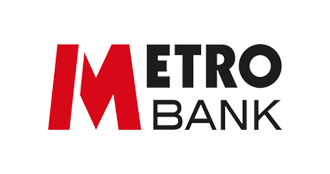 | Metro Business Banking ✓ Business Current Account ✓ High Street Presence ✓ FSCS Protected Pricing Trial period Contact | |
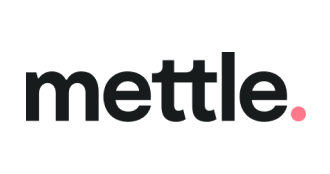 | Mettle Business Banking ✓ Business Bank Account ✓ Online & App ✓ Quick & Easy Application Process Pricing Trial period Contact | |
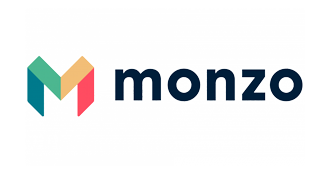 | Monzo Business Banking ✓ Business Current Account ✓ Dedicated mobile app experience ✓ FSCS Protected Pricing Trial period Contact | |
 | Virgin Money ✓ Business M Account ✓ In-Store, Online & App Banking ✓ Insights & Forecasting Platform Pricing Trial period Contact |
Barclays
Barclays, one of the largest banks in the UK, has a comprehensive suite of business banking products and services. It caters to businesses of all sizes, from startups to large corporations. With a long-standing reputation and a wide network of branches, Barclays offers a range of features to support businesses.
Pros and cons
Pros
- Extensive range of account types, including current accounts, savings accounts, and foreign currency accounts.
- Access to business loans and financing options to support growth and investment.
- Robust online banking platform and mobile app for convenient access to account information and transactions.
- Extensive cash deposit facilities, including over-the-counter and self-service options.
- Competitive interest rates on savings and business accounts.
- Dedicated customer support and relationship managers for personalized assistance.
- Integration with accounting software and other business tools for streamlined operations.
- Strong account security measures and fraud prevention.
Cons
- Higher fees and charges compared to some digital-only banks.
- Limited free transactions and cash deposit allowances, with additional charges for exceeding limits.
- Reliance on physical branches may be inconvenient for businesses operating in remote areas.
- Some customers have reported slower response times from customer support.
Table of fees and charges
| Services | Fees |
|---|---|
| Monthly Account Fee | £5 – £6.50 (depending on the account type) |
| Transaction Fees | 20p – 75p per transaction |
| Cash Deposit Fees | Up to £5,000 free per month, then 90p per £100 deposited |
| International Transfer Fees | £6 – £40 per transaction |
| Overdraft Interest Rates | 7.7% – 14.9% EAR variable |
| Card Charges | £30 – £75 annual fee (depending on the card type) |
| Business Loan Interest Rates | Starting from 2.8% APR |
Unique and standout features
Barclays offers several unique features that differentiate it from other banks in the market. Some of the standout features include:
- Barclays SmartBusiness Dashboard: A comprehensive online platform that provides real-time insights and analytics to help businesses monitor their financial performance and make informed decisions.
- Bespoke Financial Solutions: Barclays offers tailored financial solutions for various industries, including healthcare, agriculture, technology, and professional services. These solutions address the specific needs and challenges faced by businesses in each sector.
- International Business Support: With a global presence, Barclays provides specialized assistance to businesses engaged in international trade, including access to foreign exchange services, trade finance solutions, and expert guidance on navigating international markets.
- Barclays Eagle Labs: A network of physical spaces and resources that support startups and entrepreneurs with co-working spaces, mentoring programs, and access to the wider business community.
Monzo
Monzo, a leading digital bank, has rapidly gained popularity for its user-friendly mobile app and innovative features. With a focus on transparency and simplicity, Monzo aims to provide hassle-free banking experiences for businesses of all sizes.
Pros and cons
Pros
- Seamless online and mobile banking experience, with intuitive interfaces and real-time transaction notifications.
- No monthly account fees for basic business accounts, making it an attractive option for cost-conscious businesses.
- Simple fee structures with no hidden charges, providing transparency and predictability.
- Integrated expense tracking features, allowing businesses to monitor and categorize their expenses effortlessly.
- Quick and easy account setup, with minimal documentation and streamlined verification processes.
- Instantly freeze and unfreeze debit cards via the app for enhanced security.
- Active community and support forums for businesses to connect, share experiences, and seek advice.
- Easy integration with popular accounting software, such as Xero and QuickBooks, for efficient bookkeeping.
Cons
- Limited range of account types and financial products compared to traditional banks.
- Cash deposit options are currently not available, which can be inconvenient for businesses that handle significant amounts of cash.
- Relatively new in the business banking sector, which may raise concerns about long-term stability and reliability.
- Lack of physical branches can be a drawback for businesses that prefer face-to-face interactions.
Table of fees and charges
| Services | Fees |
|---|---|
| Monthly Account Fee | Free |
| Transaction Fees | Free (within certain limits) |
| Cash Deposit Fees | Not available |
| International Transfer Fees | £0 – £25 per transaction |
| Overdraft Interest Rates | 19%, 29%, or 39% EAR variable |
| Card Charges | Free |
| Business Loan Interest Rates | Starting from 3.7% APR |
Unique and standout features
Monzo brings some distinctive features to the table that set it apart from traditional banks:
- Monzo Business Marketplace: A curated marketplace within the app, offering a range of integrated services such as business insurance, utilities, and accounting software, making it a convenient one-stop-shop for various business needs.
- Savings Pots: Monzo’s savings feature allows businesses to set aside funds in separate pots with individual savings goals and competitive interest rates.
- Instant Invoicing: Create and send professional invoices directly from the Monzo app, enabling faster payment collection and improved cash flow management.
- Open Banking Integration: Monzo leverages open banking APIs to provide a consolidated view of a business’s financial landscape, allowing easy integration with third-party applications and services.
Conclusion – Barclays vs Monzo
When it comes to Barclays vs Monzo for business banking, both banks offer unique advantages and cater to different types of businesses.
Barclays, with its extensive range of services and physical branch network, appeals to businesses that value a long-standing reputation and comprehensive financial solutions.
Monzo, on the other hand, excels in user experience, transparency, and digital integration, making it an attractive choice for tech-savvy businesses seeking simplicity and convenience.
Consider your business’s specific needs, preferences, and growth plans to determine which bank aligns best with your requirements.
FAQ
Both Barclays and Monzo allow remote account opening, typically through their respective websites or mobile apps. The application process involves providing necessary documentation and fulfilling verification requirements.
Yes, Barclays offers business loans and financing options to support various business needs, such as expansion, equipment purchase, or working capital requirements. The availability and terms of loans may vary based on factors like creditworthiness and business profile.
Currently, Monzo does not offer cash deposit options for business accounts. However, they are continuously exploring additional services and features to enhance their business banking offerings.
Both Barclays and Monzo may have transaction limits associated with their business accounts. These limits can include daily spending limits, maximum transaction amounts, and cash withdrawal limits. It’s advisable to check the specific terms and conditions of the account you choose.
Both Barclays and Monzo offer integration with popular accounting software. Barclays integrates with accounting software such as Xero and QuickBooks, while Monzo has its own integrations, including partnerships with various service providers. Evaluate the specific software integrations you require for your business and consider which bank offers the most suitable options.
Yes, both Barclays and Monzo provide customer support services. Barclays offers dedicated relationship managers for business customers, while Monzo provides support through their in-app chat, community forums, and email. Response times may vary, so it’s worth considering the level of support you expect and the channels that are most convenient for you.
Remember to conduct thorough research, review the latest terms and conditions, and consider your business’s unique requirements before making a decision.

